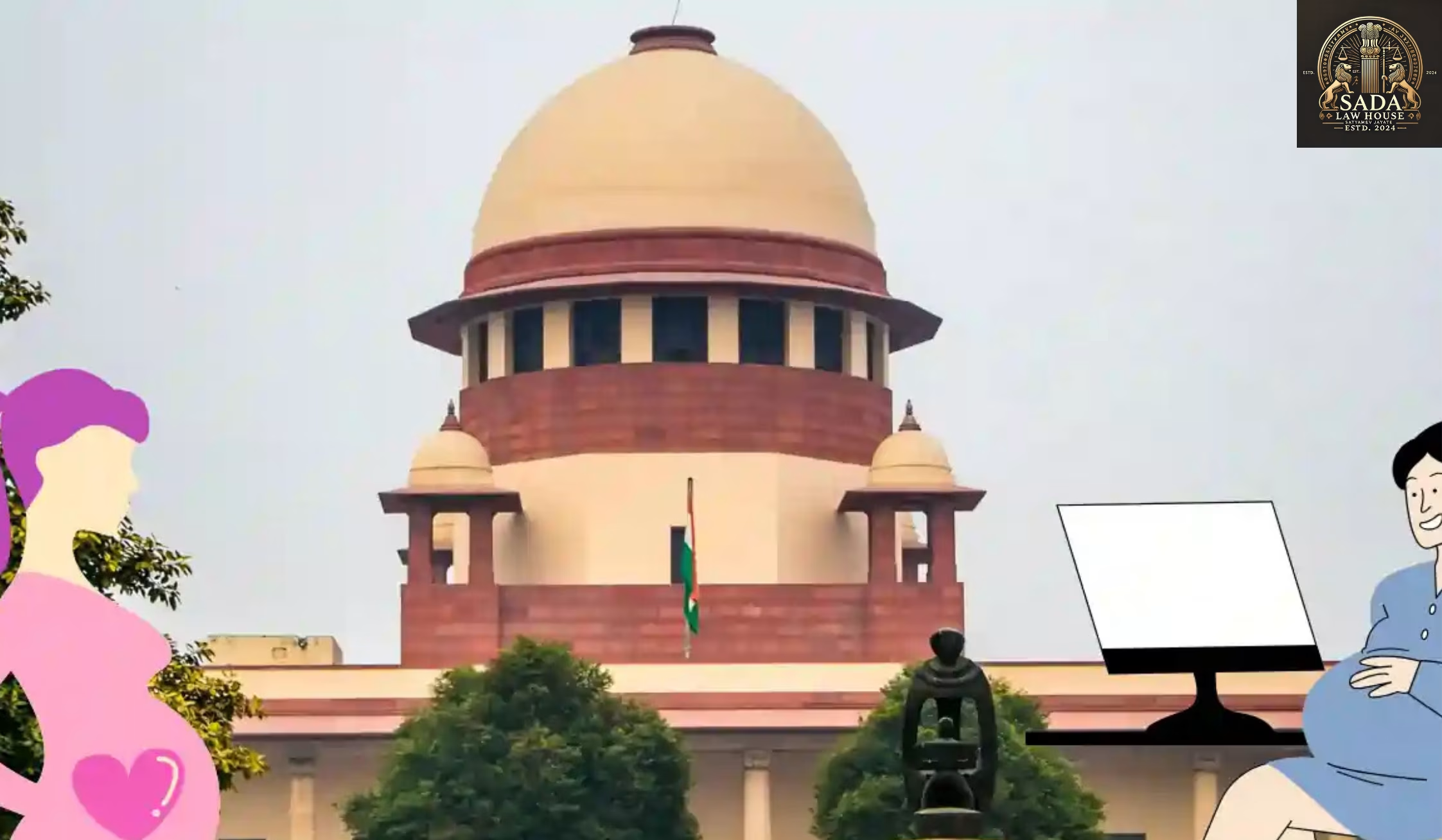Supreme Court Affirms Maternity Leave as Constitutional Right, Even for Third Child
- Prabhat Kumar Biltoria
- 16 June 2025

India’s Supreme Court upholds maternity leave as a constitutional right, even for the birth of a third child. Learn how this landmark judgment strengthens reproductive rights and protects the dignity of working women.
Introduction: A Historic Ruling on Maternity Leave in India
In a landmark judgment, the Supreme Court of India has ruled that maternity leave is a constitutional right, even in cases involving the birth of a third child. This decision reinforces the protection of women’s reproductive rights, workplace dignity, and access to reproductive healthcare under the Indian Constitution.
Maternity Leave Linked to Health, Dignity, and Equality
The bench, comprising Justices Abhay S. Oka and Ujjal Bhuyan, emphasized that maternity leave is essential for maintaining the health, dignity, and well-being of working women. The judgment recognized that pregnancy significantly affects a woman’s physical and mental health, making adequate leave crucial.
“Women are a vital part of the workforce and must be treated with respect and dignity,” the Court stated.
Previous High Court Ruling Overturned
The decision came in response to a case involving a school teacher in Tamil Nadu, whose request for maternity leave was denied by the Madras High Court. The denial was based on a state policy restricting maternity leave for a third child, intended to support population control measures.
However, the Supreme Court overturned this ruling, stating that the teacher was entitled to maternity leave, especially since her third child was from a second marriage.
Reproductive Rights Are Constitutionally Protected
The Court reaffirmed that reproductive choices fall under the right to privacy and dignity guaranteed by the Constitution. It also declared that women must have unrestricted access to reproductive healthcare, which includes time off for pregnancy and childbirth.
“Every woman has the right to make reproductive choices without undue interference from the State,” the bench noted.
Implications for Women’s Rights in the Workplace
This ruling sends a clear message that state policies on maternity leave must align with constitutional protections. It also highlights the importance of safeguarding the dignity and autonomy of women in the workforce.
Conclusion: Strengthening Women’s Rights in India
The Supreme Court’s decision marks a significant step forward in protecting women’s rights in India. By declaring maternity leave for a third child a constitutional right, the Court has set a strong precedent for future cases involving gender equality, workplace benefits, and reproductive freedom.
Case Laws






